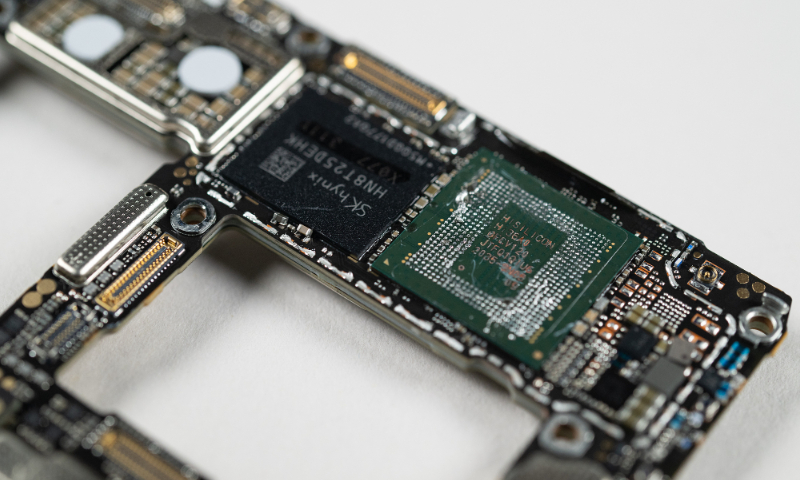US loses first round in attempts to curb China's tech progress; change of course a better option

A Kirin 9000s chip made in China by Semiconductor Manufacturing International Corp (SMIC) inside a Huawei Mate 60 Pro smartphone Photo: VCG
US Commerce Secretary Gina Raimondo said she was "upset" when China's Huawei Technologies released a new phone with an advanced chip during her visit to the country last month but noted that the US has no evidence China can make these components "at scale," Bloomberg reported. She also said the US is trying to use every single tool at its disposal to deny the Chinese the ability to advance their technology in ways that can hurt the US.
Raimondo's words are nothing new, but saying that China's technological advancement "can hurt the US" is a stupid and ridiculous line of thinking. Many American elites refuse to accept that the Chinese have broken through the technological blockade. Radical lawmakers are calling for efforts to strangle Huawei and SMIC, which is not only hegemonic but also an evil way of thinking.
Whether it is ASML, the Dutch manufacturer of lithography machines, or the American chip giants, they do not believe that decoupling can stop China's progress in semiconductor technology. They believe that China can find alternative methods and its own technological path. However, a large number of American elites are non-technical and refuse to face reality, blindly believing that Huawei's breakthrough is because the US export controls on technology to China are "still too loose."
It should be said that Huawei's breakthrough has to a certain extent undermined the credibility of the US' technological blockade against China and shattered the collective confidence of the West in this regard. Washington's current investigation into the origin of Huawei's chips and attempts to tighten the noose on the blockade against China will only isolate itself.
Because Washington clearly lost the first round, it has to bet even bigger and risk losing the Chinese market for many Western semiconductor companies. Imagine the result of continuing technological restrictions if Huawei makes further breakthroughs - can ASML's lithography machines still enjoy their current glory? Where will the US-controlled chip production factories find their next market? Just look at the panic faced by Japanese and German automotive giants today in the face of the rise of Chinese electric vehicles. If the current semiconductor leaders are cut off from the Chinese market, who can guarantee that their future situation will be better?
Huawei's Kirin 9000s is a breakthrough that it was forced to make by the US sanctions. If the US exerts even greater pressure, it will turn this breakthrough into a systemic breach, promoting a highly integrated and strong production chain in the Chinese semiconductor industry. Chips produced in China will also be much cheaper than those produced in the US.
If the US semiconductor industry loses the Chinese market, it will not be as lucky as Google and Facebook. The latter have software advantages that some Chinese internet companies do not have, including the application ecosystem they established by being the first movers. However, semiconductors are hardware, and when Chinese companies like Huawei can provide a cheaper alternative, the situation will be completely different.
A crucial crossroads has been reached. If the US forces China to achieve complete independence in the semiconductor industry, it will have no further cards to play in blocking China's progress. Moreover, the technological landscape of the world will undergo a rewrite. China now possesses the capital, and we will continue to progress no matter what. It is now the US' turn to make a choice: continue gambling or change course and resume cooperation?
The author is a media professional. opinion@globaltimes.com.cn

